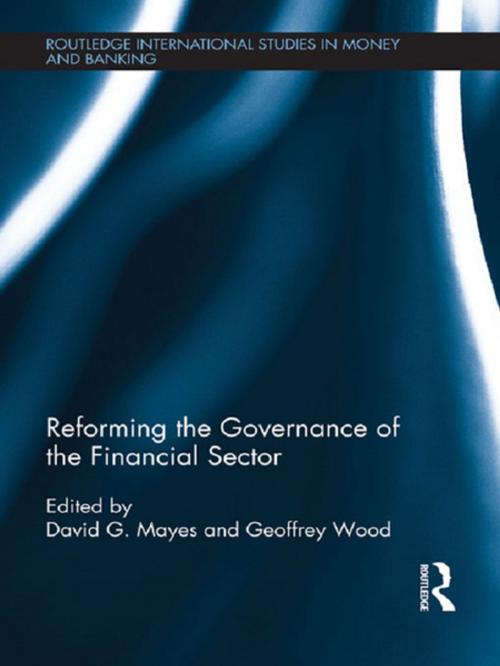Reforming the Governance of the Financial Sector
Business & Finance, Finance & Investing, Banks & Banking, Economics, International| Author: | ISBN: | 9781136192333 | |
| Publisher: | Taylor and Francis | Publication: | December 12, 2012 |
| Imprint: | Routledge | Language: | English |
| Author: | |
| ISBN: | 9781136192333 |
| Publisher: | Taylor and Francis |
| Publication: | December 12, 2012 |
| Imprint: | Routledge |
| Language: | English |
Many financial institutions have in recent years failed – failed either completely, and gone into bankruptcy, or failed in the sense that they have not achieved what their owners or their customers expected them to deliver. This has had significant and adverse effects on customers, taxpayers, shareholders, and sometimes management. There has been much discussion of what should be done about this, and some action has been taken. But has it been the right kind of action?
Crises of the sort being experienced are low probability but high impact events. This volume, from an international group of scholars, deals with two main issues: firstly, how can the governance of the financial sector by the authorities be improved and secondly, how can the governance of firms and institutions within the sector be improved to render the probability and cost of future crises lower?
Poor governance has been one of the major contributors to the global financial crisis. With better governance of and in the financial sector the financial crisis might well have been avoided altogether and certainly could have been much milder in its impact. This is not simply a case of being wise after the event. These problems were widely discussed before the event, but little action was taken. This book explores not only what the contribution of poor governance was to the crisis and to its depth, but also why it is often difficult to improve governance. The volume offers a positive critique of the measures that are being put in place in the light of the experience of the crisis and suggests how they might plausibly be improved.
This book will be of particular interest to students and researchers of economics and international finance, but will also prove profitable reading for practitioners and the interested public.
Many financial institutions have in recent years failed – failed either completely, and gone into bankruptcy, or failed in the sense that they have not achieved what their owners or their customers expected them to deliver. This has had significant and adverse effects on customers, taxpayers, shareholders, and sometimes management. There has been much discussion of what should be done about this, and some action has been taken. But has it been the right kind of action?
Crises of the sort being experienced are low probability but high impact events. This volume, from an international group of scholars, deals with two main issues: firstly, how can the governance of the financial sector by the authorities be improved and secondly, how can the governance of firms and institutions within the sector be improved to render the probability and cost of future crises lower?
Poor governance has been one of the major contributors to the global financial crisis. With better governance of and in the financial sector the financial crisis might well have been avoided altogether and certainly could have been much milder in its impact. This is not simply a case of being wise after the event. These problems were widely discussed before the event, but little action was taken. This book explores not only what the contribution of poor governance was to the crisis and to its depth, but also why it is often difficult to improve governance. The volume offers a positive critique of the measures that are being put in place in the light of the experience of the crisis and suggests how they might plausibly be improved.
This book will be of particular interest to students and researchers of economics and international finance, but will also prove profitable reading for practitioners and the interested public.















